Mark Squire’s 50 Years at Good Earth Natural Foods
In 1969, Mark Squire, then a precocious 16-year-old fascinated by Eastern philosophy and the nascent organic food movement, quit high school in Connecticut and found his way to Fairfax, CA. He negotiated a job (in exchange for two dollars a day and food) at Good Earth Natural Foods, which had been open only six months. He pitched a tent behind the original 123 Bolinas Road location and eventually became principal partner—now with Al Baylacq and Stephen Mitchell.
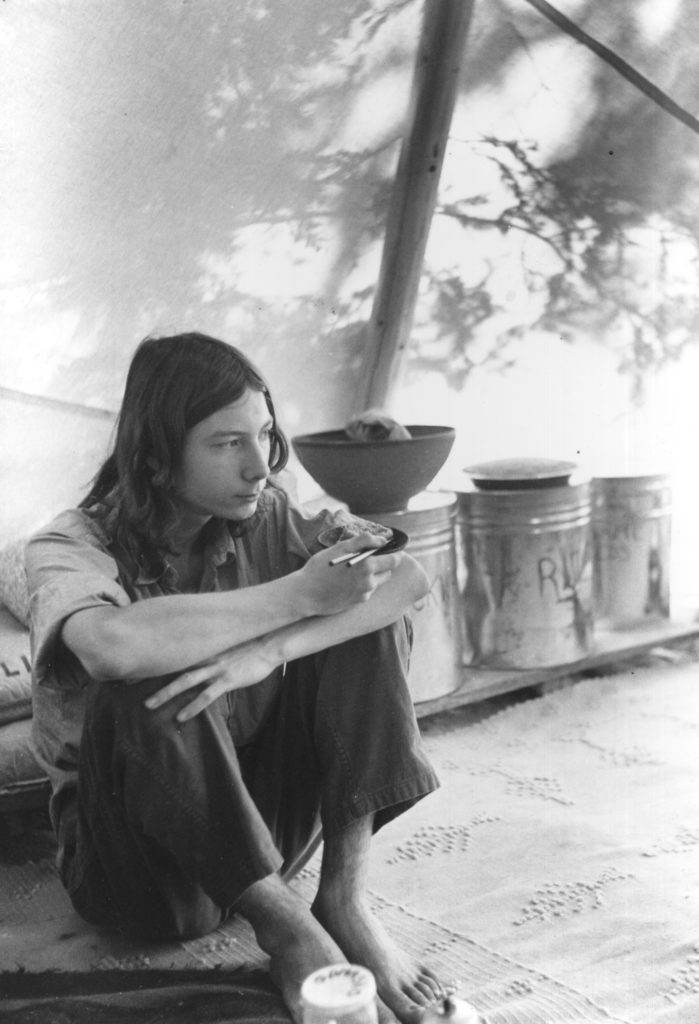
Over the course of five decades the iconic Fairfax store, known for being a uniquely happy community hub, moved only twice. A second store was added in Mill Valley in 2016. Within the same timeframe Mark has been intimately exposed to nearly every facet of the organic food system—of which he is a vociferous champion. He has also been a fierce adversary of genetically modified foods and was pivotal in starting the successful Non-GMO Project initiative.
Most recently Mark’s theoretical appreciation of organic agriculture became firsthand when he took up residence at Tara Firma Farm in Petaluma. This is where we caught up with him during the February rains amid muddy row crops and meandering livestock.
Common Ground: At 66 you’re the youngest old-timer in the natural products industry. Very few were doing this in 1969. How did you create Good Earth?
Mark Squire: I left my parents’ home in Connecticut on my 16th birthday. The Vietnam War was raging. I wasn’t happy about that, nor about what I was learning in school. My older brother Hart and I had been reading a lot about organic foodie stuff and came west looking to get involved in a food business.
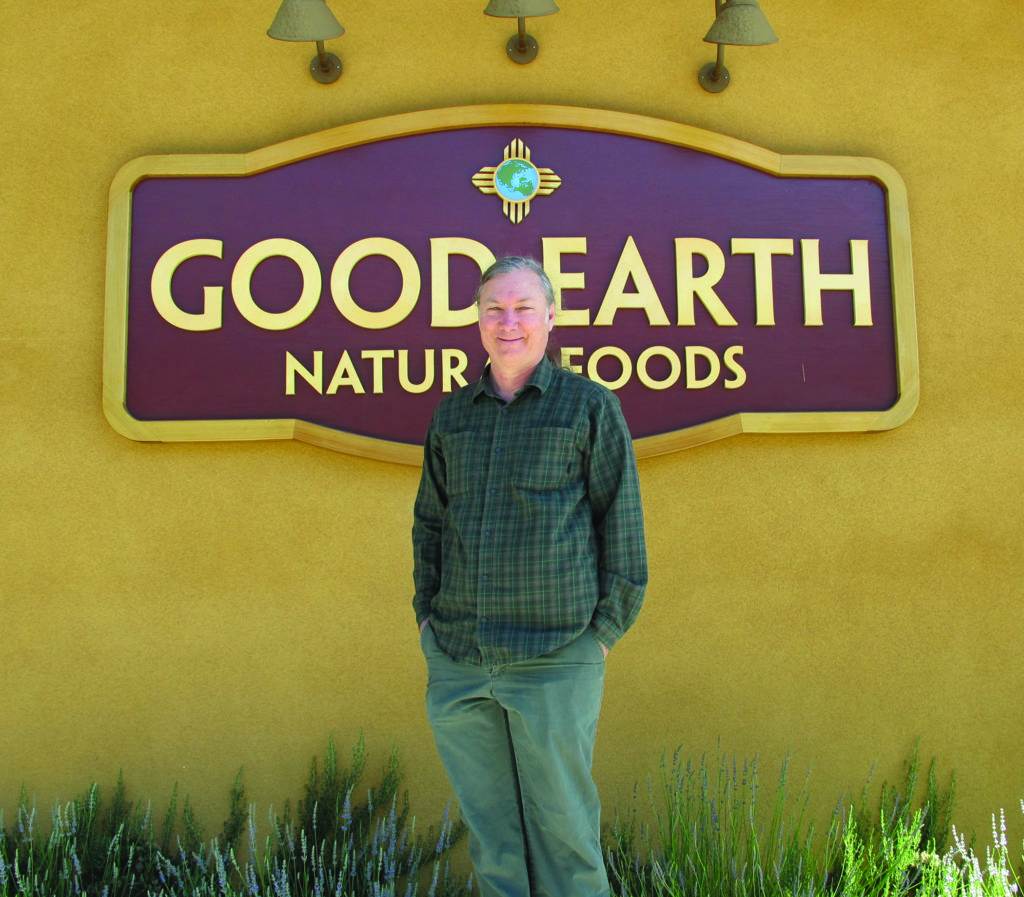
Good Earth in Fairfax had just opened so we basically walked in and said, “We want to work here.” They said, “We don’t have any money to hire anybody.” We struck a deal to earn our food and a couple of dollars a day. We went and bought a tipi and lived on the hill behind the store. That was something you could do in the late ’60s. We didn’t know whose land it was. I was already convinced that organic food was very powerful for changing human health.
What was your childhood like in Connecticut that you had to bolt?
I grew up in suburbia. My dad was a journalist who took the train into New York City every day and my mom was a writer. I got high grades in school but the conventional idea of going to college and learning how to fit into society didn’t appeal to me.
You’ve been vegetarian for a long time?
Since I was 14. Throughout my childhood I had terrible nightmares and woke up in these sweats and full of fear. The day I became vegetarian was the last bad dream I ever had. Something about meat just never agreed with me personally.
What was your religious background or spiritual upbringing?
My dad was a devout atheist. He wouldn’t step in a church for anything. My mom was Episcopalian. I did go to church with Mom some times but it was always offered as a choice. When I was 13 I read Swami Vivekananda and that might’ve been what led me to leave school. I respected his teachings on the truth about the human mind. I also read George Ohsawa and Michio Kushi, whose teachings about whole foods and macrobiotics included a huge component of Eastern yin-yang philosophy. At the core this was a mixture of Taoism and Shintoism.
Because of the macrobiotic stuff I ended up being taken in by a couple in San Francisco, Cornelia and Herman Ihara, who were students of George Ohsawa. They really appealed to me because they were very much into studying and learning and not getting tripped out with the heavy belief systems that did turn macrobiotics a bit culty.
Rachel Carson was a big influence?
Oh yes. Her book woke a lot of people up to the dangers of pesticides and the craziness of putting poisons on our food. At Good Earth I was buying from all these farmers and learning about the system of organics and making friends in that community. Many of those old-timers I am still in touch with like Frank Ford who started Arrowhead Mills, and Arran Stephens from Nature’s Path. Bob Quinn is the kamut guy. Michael Potter started Eden Foods 50 years ago from the macrobiotic tradition. He is quite a character. I remember when he came out with soy milk, which was a new thing.
Your focus has been organic.
What I’ve learned over time is that organic farming doesn’t really work if you just remove the pesticides from conventional farming. The whole system crashes. Think of a drug addict going cold turkey. It’s about developing healthy soils that depend on an amazing sharing that occurs between microorganisms. For example, plants give sugars to the fungus and he fungus in turn dissolves minerals for the plants. In turn healthy soils create healthy plants that are more insect resistant. Getting good science that demonstrates such symbiotic functions has been a strong trend in organics.
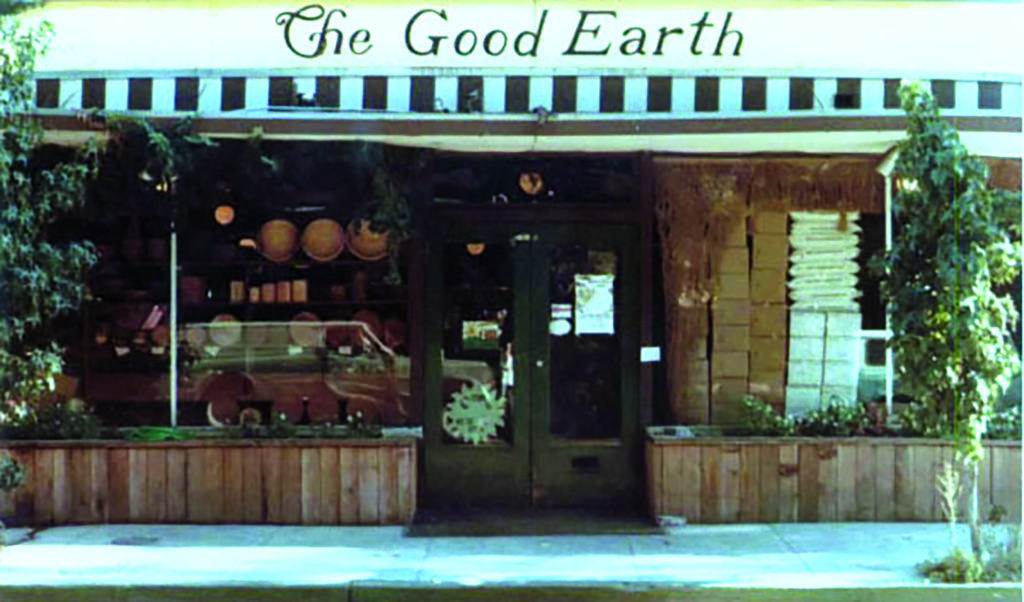
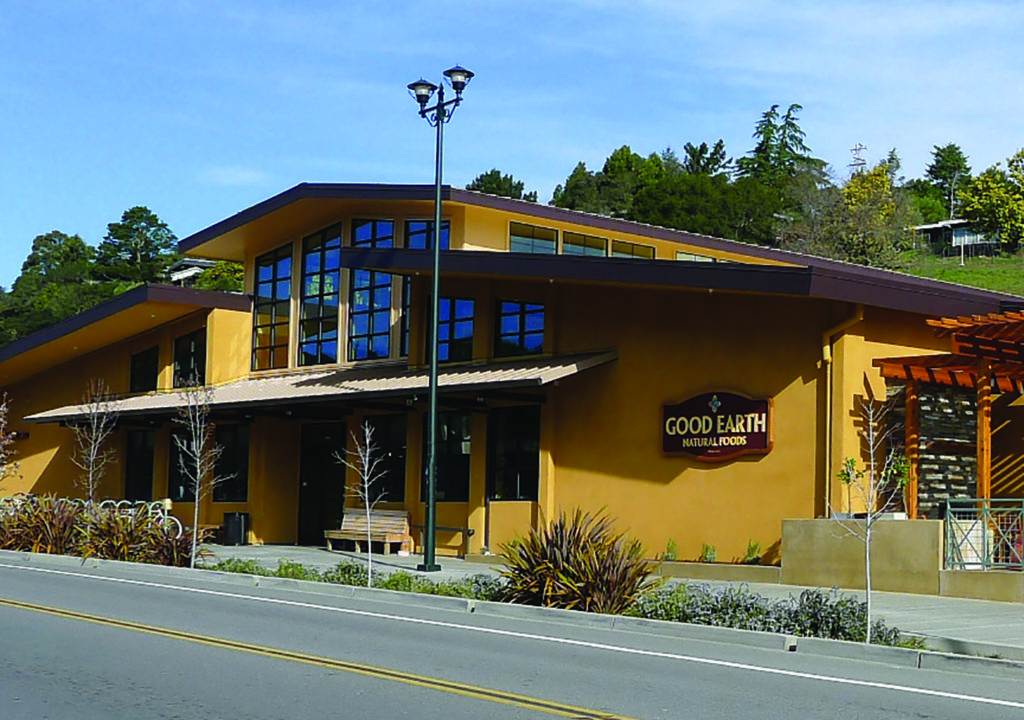
You’re a longtime anti-GMO crusader.
Monsanto really did think they would be able to revolutionize agriculture through genetic modification but they were absolutely unable. I’m convinced that the damage done to the genome when they change those plants is actually causing a lot of harm to the quality of the food produced in that system. Organic is elegant and it makes so much sense scientifically.
I was involved in the Measure B campaign to ban GMOs in Marin, which won by 62 percent, and the Prop 37 campaign to label GMOs in California. We lost Prop 37 by only a point and a half, which, considering the magnitude of the dollars pumped in against that campaign, was pretty good. What I’ve learned is that these political referendums are nothing more than educational campaigns.
The most heartwarming David vs. Goliath success story is the Non-GMO Project, with its ubiquitous butterfly logo.
About 12 years ago Bob Kerner from Natural Grocery Company in El Cerrito and Berkeley and I along with The Big Carrot, which is this Toronto-based store that was also very concerned about the GMO issue, got together and formed a partnership of independent retailers to create the Non-GMO Project. We hired Megan Westgate, who’s still the executive director, and that was it. The verification is rigorous to prove that you don’t have GMOs but it’s caught on. The Non-GMO Project butterfly verification logo came out in 2010 and is now on 3,000 brands and 50,000 products, giving people a means of awareness about GMOs.
I love that it was driven by local independent retailers. Now that organic food is a $50 billion industry, that must shift the dynamic in Washington,
Night and day. It has everything to do with that 50 billion number. As little as five years ago you’d be talking to representatives in DC and be treated like weird hippies pushing fringy agriculture. Now even in Republican offices in the Senate and the House you show stats about the money the industry is generating in rural communities and they take you seriously. At its core organic agriculture is a conservative idea.
But industrial farming is far from dead.
If you break out human food, organic is actually growing faster than any other segment of the food market. Twenty percent of U.S. produce is now organic. It’s in the animal food market that all the GMO corn and soy is being raised. But I’m hopeful that Americans will to start to realize that eating animals raised with all those GMOs is a health and environmental disaster. But I have always been an optimist.
That’s the charm of Good Earth—it’s a magical place that epitomizes the progressive Bay Area. You’ve created something very special. What’s been the key to your success?
Thank you. We’ve always seen ourselves as a community store so we tried to make it a special place for people to hang out. I think that’s a big part of the charm—the community.
Agreed. I sometimes joke that it’s the happiest place on Earth.
Aww… thank you. So community is one part but I also think when people come to Good Earth they come to be connected with that bigger food issue—such as our commitment to organics. We’ve always prided ourselves on offering the best quality food based on health. Economics has not been the deciding factor. You know we have stopped selling certain things that were very popular sellers. The reason we pulled them is because we didn’t think that they were the best choices for people. I think our customers have come to recognize that when they walk into the store there’s a lot more going on that just selling food. We are driven by that idealism—the “food is medicine” philosophy.
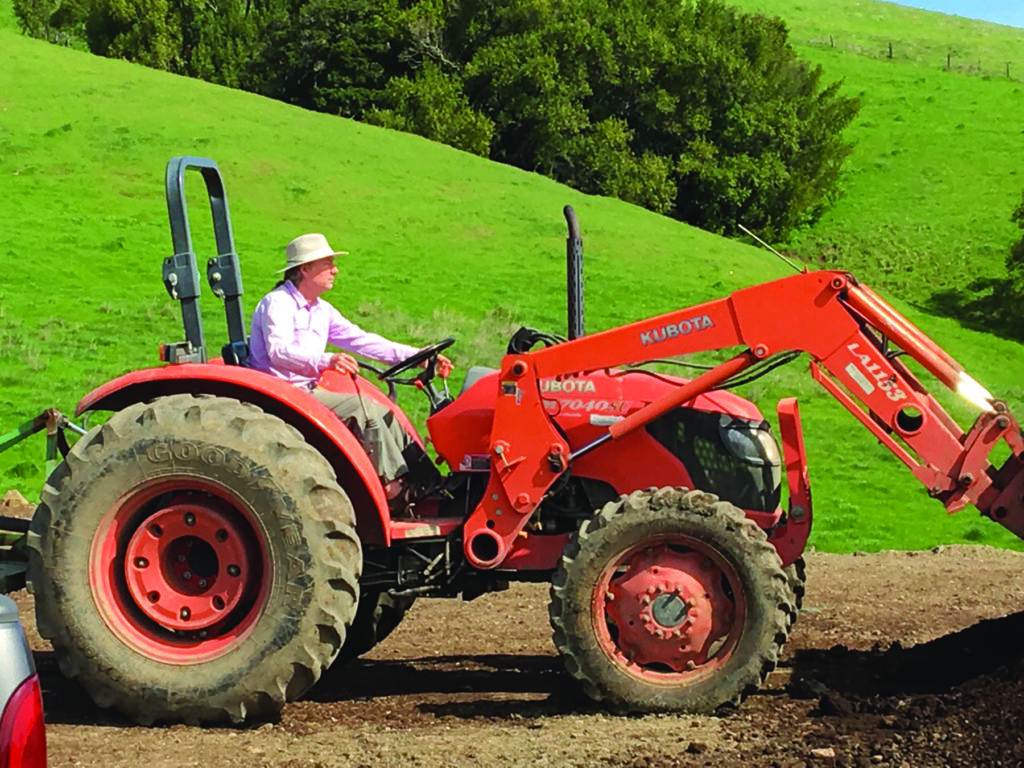
If there’s any consumer pushback it’s the prices.
When you’re in the food industry you start to understand all the distinctions that make up food quality—they’re huge. For example, Good Earth could buy carrots that are produced organically on a big farm in Southern California that is using minimal inputs to meet that organic requirement. Or we could buy from a local producer like Full Belly Farm that has been growing organic for many, many years and has developed the soil health that I spoke of.
The carrots from Full Belly have a higher nutrient density that you can actually taste. They are simply a better product. There’s nothing airy fairy about it. The energy in those better carrots is profound and I believe actually leads to better health quality. You may end up paying more for your groceries now but your health costs will be less later.
Pay now or pay later.
I think so. Personally I never go to the doctor, and having raised two kids that are now in their 40s with kids of their own I can say my family has had almost no health issues. I have a lot of friends who believe the same thing—that nutrition is a good investment.
You’ve become something of a gentleman farmer having moved your home to Tara Firma Farm in Petaluma.
We took this farm over from a woman who had created what I call “a mixed operation.” We have cows grazing the hills, pigs, chickens, goats. I’m doing the row crops, growing squash, garlic, and pumpkins for our events. Personally it’s been lovely. I’m fitter and learning a lot, particularly since I’ve been so involved in these conversations about farming systems, soil health, tillage. Now I actually see it happen. Plus, I live with kids and grandkids, so that completes it.
What trends in the future of food concern you?
The world of genetic engineering and what some people are calling synthetic biology. It’s basically genetically engineering microorganisms—yeast, algae, bacteria used to produce proteins for human consumption. The Impossible Burger is the example already on the market. It’s basically producing this genetically engineered hemoglobin or blood-like compound that imitates beef. No testing. No health studies of any magnitude. To me it’s like you don’t just create completely new proteins and start eating them without doing a lot of analysis of the health implications.
Americans think the FDA’s protecting them from food additives but if you actually look at what is happening there is no meaningful regulation.
They’re looking at dairy proteins that will all be created not from cows but from GMO yeasts and stuff like that. There’s this other thing called a “gene drive” where they’ve basically learned how to genetically modify a living organism. It’s been done with mosquitoes where they make a mosquito that produces only sterile young to cause all the mosquitoes in a whole area to go extinct. None of us like mosquitoes but nonetheless you have to have some awareness that mosquitoes have this niche in the ecosystem. They’re looking at the small shortsighted profit to be gained.
They’re looking at doing the same thing with this cherry worm—to eliminate the species to have a more productive cherry yield. We’ll have more profitable production of cherries but what about the ripples in the environment? They’re thinking they can do it with weeds. It’s not long-term thinking.
It’s like artificial intelligence. Are the robots gonna win or the real organic crowd?
I’m optimistic it’s going to be the organic crowd. Organic agriculture is elegant and sustainable for a reason. It actually tends to get better and better over time, whereas the chemical systems and all these GMO systems tend to get worse.
Other things that tick you off?
It’s really hard for me to watch the PR machine of the pesticide and GMO industries because they keep coming out with these articles that try to paint organic as being this elitist system. It’s a lot of lies. They keep talking about how we need pesticides and GMOs to feed the hungry of the world and that the organic community is not scientific. If you actually look at their science none of it is true. But they have a big investment and those perpetuated lies keep a lot of people from really embracing organics and that’s sad.
What stuff floats your boat?
This feeling like that we do touch people’s lives sometimes. I always think of one young lady who came into Good Earth and started working for us as a cashier. She was in really poor health but after a number of years I remember looking at her and it was like, “Wow, this is a different person.” She transformed her health over time. We have customers who feel like they have transformed their health by eating natural and organic food. Or they have improved their kids’ health. That touches me.
After 50 years you’re not in this for the money but actually enjoy coming to work.
Good Earth’s got a great team so I could trim my hours back. Already I fill half of my schedule doing food activism. I’m on the Organic Trade Association board and I go to DC lobbying for organic causes. That’s my way of contributing to the store, so how can you not like that? Not to mention that it’s a great place to work, right?
You found your calling.
Yeah. Think so.
Rob Sidon is publisher and editor-in-chief of Common Ground.